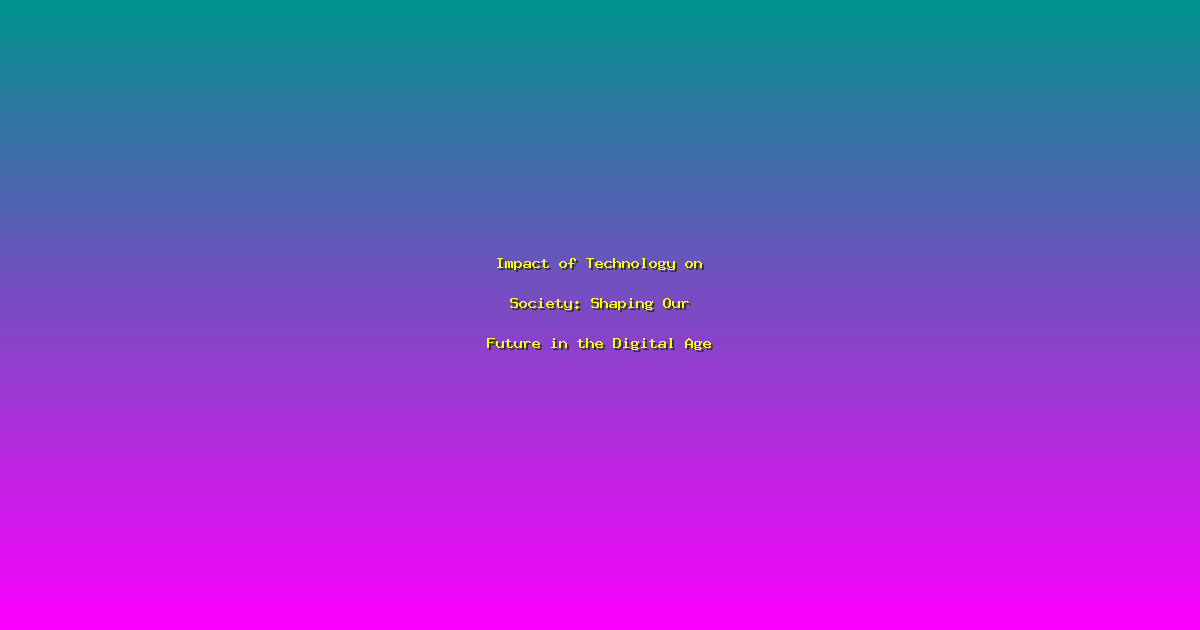Impact of Technology on Society: Shaping Our Future in the Digital Age
In the heart of the 21st century, technology has become the cornerstone of modern society, influencing nearly every facet of human life. From the way we communicate to how we work, technology is not just a tool but a transformative force that is redefining our societal norms and expectations. This article delves into the multifaceted impact of technology on society, exploring both the benefits and challenges it presents.
The Transformation of Communication
The advent of digital communication technologies has fundamentally changed the way we share information and connect with each other. Social media platforms, instant messaging apps, and video conferencing tools have made the world more interconnected than ever before. These advancements have not only made communication faster and more accessible but also have opened up new avenues for social interaction and community building.
Revolutionizing the Workplace
Technology has revolutionized the workplace, introducing automation, remote work, and digital collaboration tools that have transformed how businesses operate. This shift towards digital operations has increased productivity and efficiency but also raises concerns about job displacement and the skills required in the modern workforce.
Healthcare Innovations
The integration of technology in healthcare has ushered in personalized medicine, telemedicine, and advanced diagnostic tools, significantly improving patient care and outcomes. However, these advancements also introduce new challenges such as data privacy and the digital divide in access to healthcare services.
FAQs
How has technology affected social interactions?
Technology has both enhanced and complicated social interactions. While it facilitates global connectivity, it can also lead to feelings of isolation and misinformation.
What are the major concerns regarding technology in healthcare?
Privacy concerns and ensuring the accuracy of medical data are significant challenges. Additionally, the cost and accessibility of advanced healthcare technologies can create disparities in healthcare quality.
How is technology changing the job market?
Automation and AI are altering the demand for certain skills, leading to a shift towards more tech-savvy and specialized job roles. This change requires continuous learning and adaptation.
What challenges does digital communication pose?
Issues such as cyberbullying, misinformation, and the erosion of face-to-face communication skills are some of the challenges posed by digital communication.
How can society ensure equitable access to technology?
Policies promoting digital literacy, affordable access to devices, and internet services, along with inclusive design of technology, can help in ensuring equitable access.

